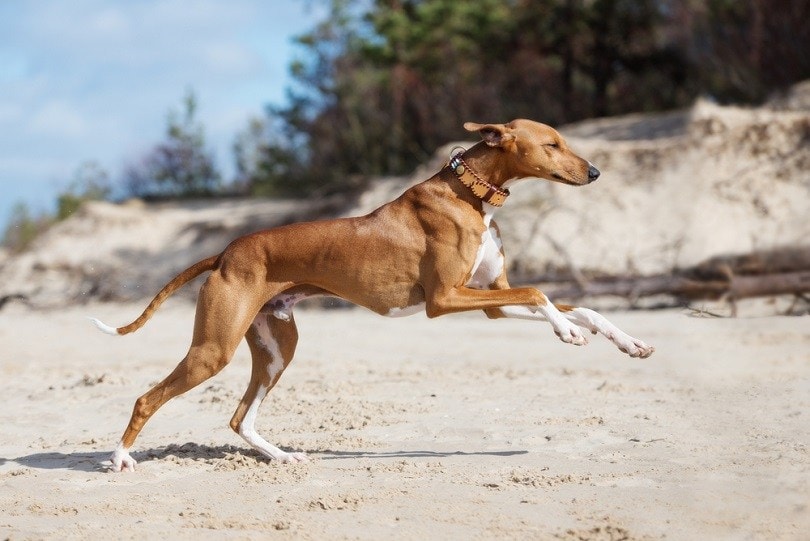Can Dogs Drink Orange Juice? Everything You Need to Know!

Updated on

Dogs and humans are different. While we both require vitamin C for good health, humans cannot synthesize the vitamin themselves whereas dogs create all the vitamin C they need, in most cases. So can dogs drink orange juice?
As such, and because of the high concentration of sugar and acid, it is not recommended that we give dogs orange juice. However, it is not toxic. If your dog has stolen a sip of your OJ — don’t panic!
Read on for more details about the dos and don’ts of orange juice as it relates to your canine.
The Health Benefits of Orange Juice
Orange juice is considered a healthy drink for humans. It is packed with vitamin C, it helps strengthen the immune system, and the fiber in orange juice also helps with gastrointestinal and digestive health.
However, as healthy as orange juice is for humans, this isn’t necessarily the case for dogs. Yes, dogs require vitamin C in the same way that we do, and for many of the same reasons. But their bodies produce it naturally. This means that feeding your dog vitamin C offers very few health benefits other than rehydration, and water is the only source of hydration a dog needs.

Can Dogs Drink Orange Juice? Health Concerns
As well as being an unnecessary addition to your dog’s diet, orange juice attracts some health concerns that mean it should not be given to your dog in any volume, other than a few accidental or sneaky sips out of your glass.
- Highly Acidic – Orange juice is highly acidic. This can pose a number of concerns. In the short-term, overly acidic food can cause gastric upset. This means vomit and diarrhea, which can also cause genuine problems for your dog, including dehydration. Highly acidic foods will also cause dental problems, including tooth decay and gum problems.
- Sugary – Orange juice is high in sugar. Dogs that consume a lot of sugar put on weight quickly, while a diet that is high in sugar can cause health complaints like diabetes and an increased risk of heart problems. It is also another factor that leads to poor dental hygiene.
What to Do if Your Dog Has Had Orange Juice
Orange juice is not considered healthy for dogs, but it isn’t toxic, either. If your dog drinks a full glass of orange juice, which is unlikely due to the strong acidic taste, he may suffer from vomiting and diarrhea. He may drink more water to try and counteract this problem and to replace the liquids that are lost. Keep an eye on your dog and look for signs of his symptoms worsening, but he should be fine even if he does consume a full glass. Generally speaking, orange juice is not toxic, but it has no benefits.
Alternatives to Orange Juice for Dogs
If you are looking for a sweet treat for your dog, you can try something like carrots. Carrots are healthy and, while they do contain some natural sugars, they contain far less than is found in orange juice and other fruit juices. Carrot juice is also available, which can make a nice and refreshing treat for your dog.
In general, however, dogs do not need any special drinks or liquids to rehydrate. Pure and simple water will give them all the liquid they require unless they are ill.
If your dog is dehydrated and showing mild signs, you can try something like Pedialyte. This replaces lost electrolytes, rehydrates the body, and is safe for your dog. If the signs are bad, or they continue to get worse, even after your dog has rehydrated with water or Pedialyte, you should seek veterinary help as soon as possible because dehydration can be deadly.

Is Orange Juice Safe for Dogs?
Orange juice is safe for dogs, so if your dog has had a few mouthfuls, there is really no need to worry. However, there are minimal health benefits, if any, because your dog is capable of producing vitamin C themselves. There is usually no reason to supplement this vitamin in your dog’s diet and you should stick to giving him plain water as a means of hydrating them.
Related Read:
- How to Stop Diarrhea in Dogs: 6 Vet-Approved Home Remedies
- Can Dogs Eat Protein Powder? Vet-Approved Facts & Risks
Featured Image Credit: pixel2013, Pixabay











